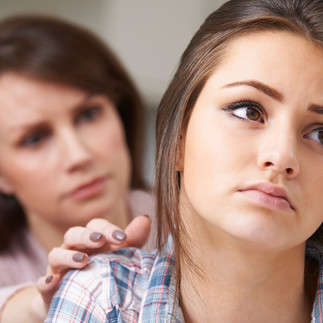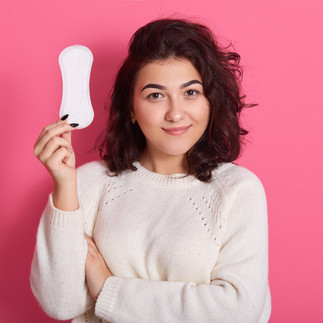"Girl's first Menstrual Cycle"
- Creative solutions
- Feb 27, 2023
- 5 min read
How to talk about girl's first menstrual cycle (period) in school ?

A period is a release of blood from a girl's uterus, out through her vagina. It is a sign that she is getting close to the end of puberty. Most girls get their first period when they're around 12. But getting it any time between age 10 and 15 is okay. Every girl's body has its own functioning.
What Causes a Period?
A period happens because of changes in hormones in the body. Hormones are chemical messengers. The ovaries release the female progesterone. These hormones cause the lining of the uterus (or womb) to build up. The built-up lining is ready for a fertilized egg to attach to and start developing. If there is no fertilized egg, the lining breaks down and bleeds. Then the same process happens all over again. It usually takes about a month for the lining to build up, then break down. That is why most girls and women get their periods around once a month.
Periods are a sign that you are growing up to become a perfectly normal and healthy woman. Girls begin to menstruate, because during puberty, the female sex hormones oestrogen and progesterone begin to function.
What if your period just started in school?
First of all, do not panic. Getting your periods is a natural biological process. It is nothing to be scared of and certainly nothing to be ashamed of. It is completely normal and natural to get your periods. Simply start using your preferred feminine hygiene product – pads, tampons or menstrual cups if you have access to them. In case you don’t, inform your class master or speak with your teacher. And if this is your first period, don’t hesitate to tell this to your teacher. She will definitely helps you with this to understand periods better.
How to manage your first period?
Irrespective of whether it is your first period, or you have been menstruating for a long time now, periods can be uncomfortable and sometimes, even painful. Slight discomfort during periods is normal and nothing to be worried about.
How teachers can help students to understand their first period?
For too many girls, their first period is a surprise. Without knowing what is happening to their body and why it is happening, menstruation can become a scary and confusing some times for them.
As a teacher, you have a wonderful opportunity to prepare the girls in your class for their monthly period. Teaching a girl about menstruation before she has her first period is the best way to make sure that she knows what will happens to her body. It’s a good idea to start talking early about how their body changes as they grow up. Here’s some necessary information that teachers need to teach to their class about menstruation.
1. It’s normal. Menstruation is a normal process that should happen to every girl once she reaches puberty – usually somewhere between the ages of 9 and 16.
2. Menstruation is not a sickness. Girls can live their normal life during periods – they can go to school, play with their sisters and friends, eat and drink everything they normally would, and attend social gatherings.
3. Girls can have irregular cycles in their first few years of menstruation. But each girl can learn to understand how her own body works by watching the small changes that happen each month. It may take a few years to settle into a regular monthly pattern. It’s really helpful if girls learn to start observing their menstrual cycle, so they can start to predict fairly accurately when they will get a period and can be ready with a pad in their school bag.
4. Girls experience many changes around the time they get their first period. Sometimes hormones make both girls and boys a bit more emotional than usual. There is no reason to be scared or ashamed of any of these changes.
5. Menstruation does not have to be a secret. There is a big difference between being discreet and keeping something secret because you are scared or ashamed. Once a girl is informed, she can be of help to other girls even if they are younger than her. She can also help older women in her family who didn’t have the opportunity to learn what she knows. She can be a girl leader.
6. Sometimes menstruation can be painful! The amount of pain can differ a lot from girl to girl and from month to month. Most pain can be eased by going on a short
walk, getting eight hours of sleep every night, drinking lots of water and some gentle pain medicine.
7. Exercise is really good for girls, no matter which time of the month. There are many benefits to exercise, including the mental boost you get from feeling fit. Exercise is a good way to help prevent cramps, and gentle exercise like a walk can also help relieve pain.
8. A girl’s body will be healthy if she practices good hygiene during her period -
1. A girl should wash outside her genital area at least once a day. If she does not have access to a shower or bath, she use a small amount of plain water, soap and a soft cloth.
2. She should always wash her hands with soap after she uses the toilet or changes a pad.
3. A used pad should always be placed in the bin, and never down the toilet. And when a girl changes her cloth at school, she should take the soiled one home in a bag to wash. She can make a simple menstrual cloth bag at the same time she learns how to make reusable menstrual hygiene cloths, so she can carry her used cloths home discreetly.
Things to keep in your mind for menstrual hygiene -
Menstruation is one of the vital processes of a woman's body which deserves utmost caution and self-care. Ensuring proper hygiene during menses, and eating right is the key to ease the pain you go through.
1. Changing sanitary napkins within every 4-6 hours is the cardinal rule to establish hygiene.
2. Disposing off your tampons and sanitary napkins properly is an important step. Wrap them properly before you throw them away, so the bacteria and infections do not spread. Make sure you don't flush them, since that will block the toilet causing the water to back up, spreading the bacteria all over it.
3. Women in rural areas tend to use cloth during periods. Unsterilized cloth and other practices makes them susceptible to urinary tract infections and other problems. Many women in rural areas reuse the cloth and others dry them in the shade, which is a major cause for concern.The problem is compounded by the fact that even when pads are being provided to women at bare minimum prices by the government, they are often not being given regularly. Also, many young girls are too shy to ask for them from health workers who are designated to provide them. “It is awkward for girls to ask for these things. Often, they are not available as well. The government should ensure that pads meant for girls are given to one of the women in that locality from where every girl can take them without hesitation.














Comments